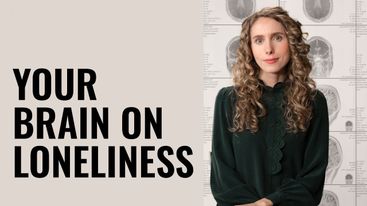
Why Loneliness Feels So Real, Even When It’s Not with Kasley Killam
Challenging the loneliness stigma can change your life. Here’s how to start.
From a young age, many of us are taught that being alone means something is wrong, leading to negative thought patterns that reinforce feelings of isolation. Kasley Killam, author of The Art and Science of Connection and an expert in social health, explains how these perceptions of loneliness can shape our experiences and influence our lives.
According to Killam, this stigma around loneliness can trigger a stress response in the body, affecting both mental and physical well being. However, by challenging these narratives and reminding ourselves of how much control we really have, it’s possible to redirect our mindsets. It also helps, she says, to understand the difference between individualistic and collectivist cultures, and how each one can influence the way we interpret and discuss our feelings with others.
For those who have struggled with loneliness or felt trapped in a cycle of negative thinking, this perspective can help us break free. By shifting our thought patterns, we can transform our relationships, enhance our sense of connection, and improve our overall well-being.
About Kasley Killam:
Kasley Killam is a social health expert, author, and advocate focused on strengthening connections and enhancing community well-being. With a background in behavioral science and public health from Harvard University, she is a leading voice on the impact of social relationships on mental and physical health.
As the founder of Social Health Labs, Killam collaborates with organizations to develop innovative solutions for combating loneliness and social isolation. Her work has been featured in major publications, and she is a sought-after speaker on the importance of social well-being in creating healthier, more resilient communities.
Read More